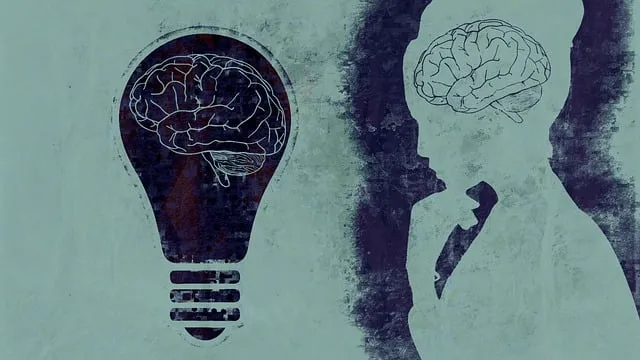Kaiser Permanente mental health center reviews Boulder highlight the effectiveness of group facilitation in enhancing mental wellness. Through supportive environments, skilled facilitators guide participants in open communication, positive thinking, and mindfulness meditation, improving individual mental health and stress management. The center offers innovative programs like self-care routine development and trauma support, utilizing evidence-based practices to foster holistic healing. Effective group facilitation techniques, combined with a safe space and comprehensive outcome measurement, make Kaiser Permanente Boulder a premier choice for transformative mental wellness experiences, as reflected in its positive reviews.
Mental wellness group facilitation is a powerful tool in enhancing individual well-being. This article explores effective techniques and strategies for facilitating supportive groups within mental health settings, drawing insights from Kaiser Permanente Boulder, renowned for its excellence in mental wellness programs. We’ll delve into creating safe spaces, engaging proven facilitation methods, and measuring the positive impact of these initiatives, as evidenced by favorable Kaiser Permanente mental health center reviews from Boulder.
- Understanding Group Facilitation in Mental Health Settings
- Kaiser Permanente Boulder: A Center for Excellence in Mental Wellness
- Effective Techniques for Group Facilitation
- Creating a Safe and Supportive Group Environment
- Measuring Success: Evaluating the Impact of Group Facilitation Programs
Understanding Group Facilitation in Mental Health Settings

Group facilitation plays a pivotal role in fostering mental wellness within communities, especially in settings like the Kaiser Permanente mental health center reviews Boulder highlights. These centers often employ group-based interventions as an effective approach to treating and supporting individuals with various mental health conditions. By creating a supportive environment, facilitators guide participants through activities that promote healing and personal growth.
Effective group facilitation techniques encourage open communication, foster positive thinking, and enhance mindfulness meditation practices. It allows individuals to share experiences, build connections, and learn from one another. This collaborative approach not only benefits the mental health of the participants but also contributes to a more holistic understanding and management of stress, as emphasized in various Kaiser Permanente mental health center reviews Boulder residents appreciate.
Kaiser Permanente Boulder: A Center for Excellence in Mental Wellness

Kaiser Permanente Boulder stands as a beacon of excellence in mental wellness, renowned for its comprehensive approach to patient care and support. This leading mental health center reviews consistently highlight its commitment to fostering a holistic environment, addressing not just symptoms but the underlying factors contributing to mental health challenges. Beyond traditional therapy, Kaiser Permanente Boulder offers innovative programs tailored to diverse needs, including self-care routine development for better mental health and trauma support services.
The center’s dedication extends to risk management planning for mental health professionals, recognizing the importance of a supportive ecosystem in preventing burnout and ensuring sustained quality care. By integrating cutting-edge research and evidence-based practices, Kaiser Permanente Boulder continues to set benchmarks in mental wellness group facilitation techniques, making it a trusted destination for those seeking transformative healing experiences in the heart of Boulder.
Effective Techniques for Group Facilitation

Effective group facilitation is key to fostering a supportive environment at the Kaiser Permanente mental health center in Boulder, where Mind Over Matter principles are put into practice. Skilled facilitators employ various techniques to navigate the dynamic nature of group therapy sessions. One powerful tool is encouraging active participation through open-ended questions and interactive exercises. This promotes self-awareness, allowing individuals to explore their thoughts and emotions in a safe space, as reviewed by many satisfied clients of the center.
Additionally, incorporating structured activities like Stress Management Workshops and Self-Awareness Exercises ensures a well-rounded approach. These organized sessions provide practical tools for managing mental health challenges, enabling group members to build resilience and better cope with daily stressors. The organization’s commitment to evidence-based practices underscores its dedication to effective group facilitation, leaving a profound impact on the lives of those seeking support at the Kaiser Permanente Boulder mental health center.
Creating a Safe and Supportive Group Environment

Creating a Safe Space for Connection and Healing
When facilitating mental wellness groups in a setting like the Kaiser Permanente mental health center reviews Boulder highlight, prioritizing a safe and supportive environment is paramount. This involves establishing clear boundaries, ensuring confidentiality, and fostering an atmosphere of non-judgment. Group members should feel comfortable expressing their thoughts and emotions without fear of criticism or repercussions.
Effective facilitation techniques include active listening, validating participants’ experiences, and modeling empathy. These strategies encourage open dialogue, promote self-reflection, and create a sense of belonging. By incorporating mental health education programs designed with these principles in mind, group facilitators can enhance risk management planning for mental health professionals, ultimately fostering a nurturing environment conducive to healing and growth.
Measuring Success: Evaluating the Impact of Group Facilitation Programs

Measuring success in mental wellness group facilitation programs is a multifaceted process that goes beyond mere attendance or satisfaction surveys. At Kaiser Permanente mental health center reviews Boulder, we emphasize quantifiable outcomes and qualitative feedback to evaluate the impact of our groups. This includes tracking improvements in self-care practices among participants, as well as assessing burnout prevention strategies for healthcare providers facilitating these sessions.
Through regular assessments and post-program follow-ups, we gauge the adoption and effectiveness of compassion cultivation practices within our facilitated groups. These evaluations help us refine our approaches, ensuring that our programs not only meet but exceed expectations for mental wellness support. By aligning our techniques with evidence-based strategies, we strive to create sustainable changes in both the lives of our clients and the well-being of our healthcare providers.
Group facilitation techniques play a pivotal role in enhancing mental wellness, as evidenced by Kaiser Permanente Boulder’s reputation as a leading center for excellence. By fostering safe and supportive environments, these methods enable individuals to navigate their journeys towards healing and growth. As seen through successful programs like those at Kaiser Permanente Boulder, effective group facilitation not only improves individual outcomes but also creates a ripple effect of positive change within communities. This evidence-based approach is transforming mental health care, offering hope and support for those seeking wellness in the heart of Boulder, as showcased by numerous Kaiser Permanente mental health center reviews.






